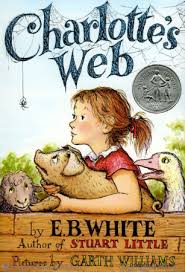
When I visit schools to meet with children, I do a number of writing workshops with them. Some of these workshops are building blocks and those that worked for me as a writer. As part of a series I’m going to pass on those tips, advice and perhaps inspire you to write. You can subscribe to these from here. You can also find them on the kids section of my website here.
Tip #1
Observe!
As a writer, observing people, things, nature becomes very important. A playing child on the train, a daffodil blossom, the squirrel that teases the dog – all are fuel to the big machine called Imagination.
Observing things helps me in so many different ways. I learn the specific name of the object. For example.
- That is not a red car. That is a Cherry Red Toyota Yaris
- This is not a bird. This is a blackbird.
- That aircraft up in the sky is a Boeing 777 from Singapore Airlines as I can see the crest on its tail.
Learning to be specific helps a writer make a very specific story. A unique story can be told if you don’t tell a generic story about a bird that had a flying red car that raced the plane in the sky. Your story would be about a Blackbird that wanted to fly and took over a cherry red Toyota Yaris and raced the Singapore Airlines Boeing 777 from London to Singapore
- Observing helps the writer to make the experience closer to the reader. If I say red car, one reader might think about a red BMW. But another might think about a red Fiat. Again red could mean anything from brownish red to bright red. If you want the reader to know exactly how big the car was and how it looked like, you have to be specific and not let the reader imagine their own.
- Observations and eavesdropping are great for writing dialogue. Listen to people talk. Take off your headphones. Open your notebook and write down everything you hear. But be careful, don’t lean in on the person you are eavesdropping on, they might not be too happy with that.
- Observations help to make your writing realistic. Have you watched a spider build a web? Then writing about it would be form theoretical knowledge. I think Charlotte’s Web was not written on the basis of just bookish knowledge of spiders.
There are some wonderful lines in Charlotte’s Web by E B White that you can learn from.
Here is an example:
It was a delicious meal - skim milk, wheat middlings, leftover pancakes, half a doughnut, the rind of a summer squash, two pieces of stale toast,
a third of a ginger snap, a fish tail, one orange peel, several noodles from a noodle soup,
the skin off a cup of cocoa, an ancient jelly roll, a strip of paper from the lining of the garbage pail, and a spoonful of raspberry jelly.
(Page 102 of Charlotte’s Web, E B White).
But how do you use practice observing as a writer? Because writers you might think have nothing much to do except to go on walks, look at things, listen to people.
You might be right about some writers. But most writers are 24-hour magpies. They watch, they wonder, they listen, they jot down and they use it in their stories.
It could the unusual orange of the sunset (click-click, take a picture), it could be the pattern of stain on a carpet, it might be the tantrum of a 4-year old or an angry rant of an old man. If you want to be a writer, keep your eyes and ears open and observe.
Here are some practical tips to improve your power of observation:
- Have a small notebook with you always. Do not rely on memory. It is not a faithful friend. Jot down as soon as you see something. If you have a phone on you, take a picture. If you are observing people, jot it down. Taking pictures of strangers or recording their conversation might be dangerous and it is also very rude.
- When you see a new tree, a flower or a bird, ask someone about it – what is its name, is it a perennial or seasonal? What is the Latin name for it. Always learn the specific name of the trees in your neighbourhood, the flora of your city and the fauna of your region.
- Observe not just what you see. Observe what you can hear and smell and feel. Is the air cold near the freezer? How does it smell when you enter your classroom? What do you hear when everyone’s quiet in the assembly?
Ready to give it a go?
Here are three exercises that you should start doing (and never stop!)
- Observe two things every day and write it down in a notebook. When you write it down, describe it with precision. It can be the noticeboard in your school or it can be your street or the supermarket. It can be a sound or a smell or a surface.
- Listen to your parents or friends talking and write down three lines of dialogue. It can be separate lines or part of a conversation.
- Describe one person you met this week – they could be your teacher, bus-driver, ticket conductor, vegetable hawker or even your grandmother. Write 2 lines about this person to us that will immediately tell us what kind of person you’re describing.
Here are two inspiring descriptions from A Charlotte’s Web by E B White to start you off.
Avery was ten. He was heavily armed – an air rifle in one hand, a wooden dagger in the other.
The barn was very large. It was very old. It smelled of hay and it smelled of manure. It smelled of the perspiration of tired horses and the wonderful sweet breath of patient cows.
If you are brave enough, you can share your writing here – in the comments section. Now off you go and observe!

